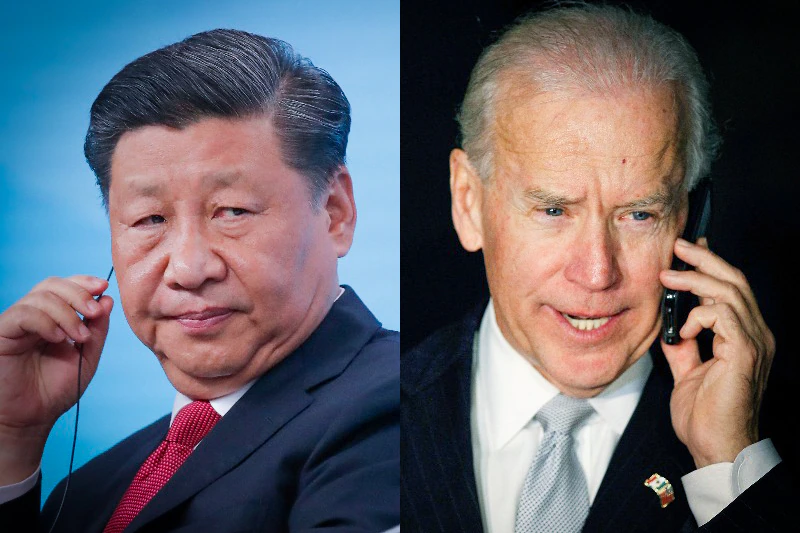Troubled US could learn from its differences with China, rather than simply challenge them
February 19, 2023
Difference is intrinsically good, a vital force behind creativity and innovation, and an essential ingredient for international competition. It becomes a negative force only when people or governments try to impose those differences on others, and this is not something China has done.
I have a chronic, deep-seated discomfort with US President Joe Bidens callfor the worlds democracies to wage war on autocrats and autocracies, particularly when used as a pretext to isolate and decouple from China.
This discomfort comes not simply from the difficulty of defining a democracy Wikipedia defines dozens of types of democracy, many of which stray far from the template Biden is starting from but because a precondition for human survival in this increasingly crowded world is a tolerance of difference.
I was just 18 when I flew into Peshawar, in northwest Pakistan, to begin a year teaching in a school full of the sons of Pathan tribesmen, plucked from a small Christian community in the British Midlands into an Islamic city in which women only appeared in burkas, most men carried rifles or always had them near to hand, and opium poppies blossomed across the hillsides.
But I quickly discovered that their very different habits, customs and belief system served a very similar purpose to those that my very-Christian parents adhered to in Britain: they enabled people to live together in very crowded circumstances without constant civic conflict.
They forged a widely held agreement on proper behaviour, and how to manage the transitions and stress points in life births, graduation into adulthood, marriages and deaths.
I realised that, rather than being morally outraged at those alien customs and beliefs, I should measure them by their effectiveness in managing the conflicts that arise in crowded communities, and in encouraging civic-mindedness and community cooperation.
The offensiveness of Islamic State or Russian President Vladimir Putin is not their different beliefs, but that they assume a right to impose their beliefs forcibly on others.
Put another way, it is OK for the British to drive on the left-hand side of the road, as long as they dont insist on doing it in France or the United States. It is OK for the US and Britain to use a common law system, and for Europeans to use a civil law system, as long as the outcomes are generally recognised as delivering what their communities believe to be justice.
I was reminded of this by my Apec colleagues from New Zealand who always blocked proposals to impose identical standards and regulations across the 21 members of the Asia-Pacific Economic Cooperation grouping. They insisted that we respect a variety of means to reach a commonly agreed end.
We should be allowed to design power plugs and power systems as our governments think best, as long as our power systems are safe, and provide adaptors enabling outsiders to plug in too; we should not insist on identical food-labelling rules, as long as the food products are safe and accurately described.
Difference should not just be tolerated; it should be treasured as part of lifes rich tapestry, and as a critical ingredient of healthy competition. And competition between different products or services is intrinsically no different from competition between different cultures, religions or political systems.
Which brings us back to theManichaean obsession in the US, which sees our world crisply divided between good and evil democracy vs authoritarianism and sanctions the right to wage war on that evil.
As Biden listed, in his State of the Union speechlast Tuesday, the grave domestic challenges facing the US from the proliferation of gun violence and declining trust in the police, to widening inequality, systematic tax avoidance by billionaires and large corporations, and a cripplingly costly healthcare system burdened by opioid addiction surely he should consider the possibility that we might learn from, rather than simply challenge, other countries ways of doing things.
Even if their way is profoundly different from ours, if they deliver safe, clean, healthy communities, with good education systems, worthwhile jobs, an absence of poverty, and good care for their elderly, then we need to concede we have lessons to learn.
If those countries are inadequately transparent, limit freedom of speech, are intolerant of religious or ethnic differences, and do not adequately respect the rights of those in the LGBTQ community, then this simply means they also need to reflect on their shortcomings, and respect the value of competition between different systems.
China is profoundly different from the US or Britain. But so too are many Islamic communities. And many conveniently ignore how different India is, with its still-pervasive caste-based divisions.
I believe to my core that difference is intrinsically good, a vital force behind creativity and innovation, and an essential ingredient for international competition. It becomes a negative force only when people or governments try to impose those differences on others.
If there is justice to be found in Bidens Manichaean battle against China, it must be based on a belief that Beijing is manoeuvring by economic and military means to forcefully impose changes on communities outside China.
So far, evidence of such manoeuvring is notably lacking. Yes, President Xi Jinping recently argued that China provided an alternative development path, challenging the idea that modernisation must equal Westernisation, but I see no harm in this. If it leads to a fresh examination of governments strengths and shortcomings, so be it. Competition can be no bad thing.
First published in South China Morning Post February 13, 2023
